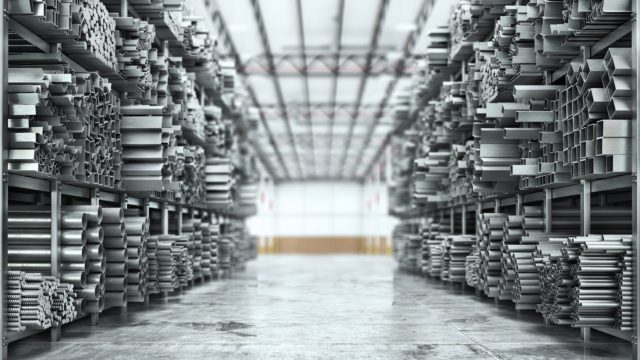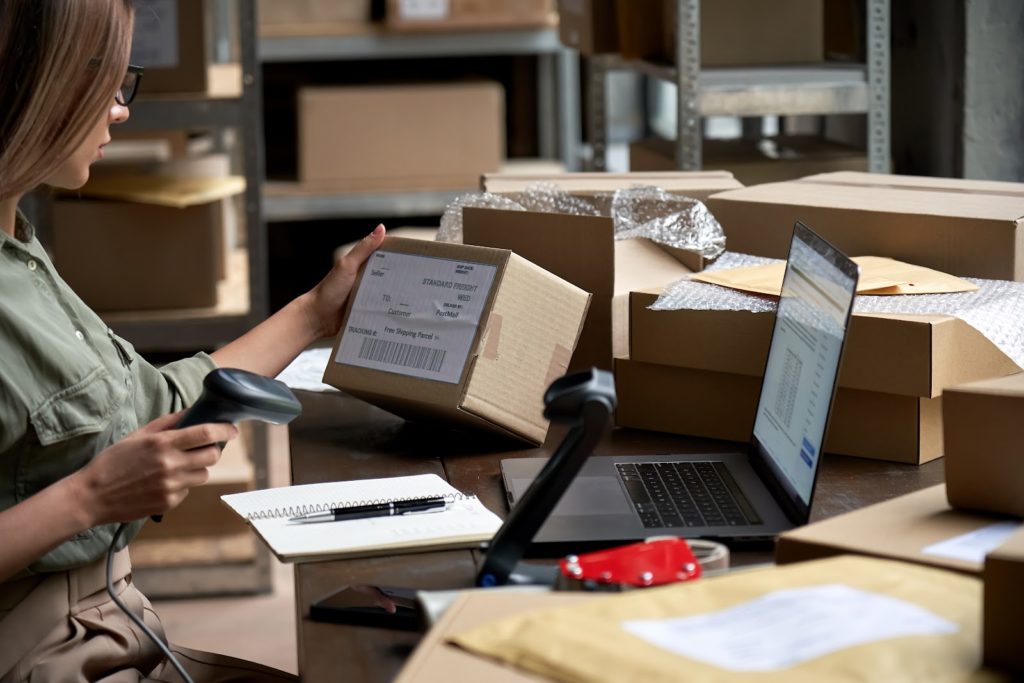
It goes without saying that the last 18 months have been some of, if not, the hardest period for many businesses across the UK and the entire world – and for The Metals Warehouse it has been no different.
When COVID-19 hit, we saw a lot of our customer base shutting their doors. That forced us to re-engineer our business. It forced us to actually look at what made us money. It forced us to look at areas of the business that needed change.
So, we made changes accordingly.
COVID, furlough and redundancy
Firstly, like many businesses across the UK, we needed to utilise the furlough scheme and what we were seeing was that areas of the business were still comfortable, despite having several members of our team on furlough for three months.
That’s a horrible realisation and one we had to look into.
Ultimately, it became clear we had to look into redundancy and it was one of the hardest business decisions we’ve ever had to make.
As a group of owners, we’re driven by our staff. It’s those guys that motivate us. That, to me, is what made owning The Metals Warehouse so special. To make those people redundant, as we did last year, was awful. They were being let go through no fault of their own.
We didn’t buy this business, we had grown up through it and grown with these people. That itself is, perhaps, one reason why we hadn’t previously put the business first.
COVID-19 forced us, and the manufacturing industry as a whole, to have a rethink and since then, everything that we have done has been good for the business. How that plays out longer term and what impact this pandemic has over a bigger scale of time, remains to be seen.
We could be looking back at this in 10 years’ time and say it was an absolute disaster for us as a business but right now, that’s not the case and the next thing for the industry is what impact this past year has had on businesses and whether COVID-19 and the furlough scheme has kicked the can down the road.
We’re going to see a number of businesses – not just in the manufacturing sector – that are going to have some tough decisions to make over the next few months.
Viable business decisions
Over the last 12 months, it has become clear that we don’t need to grow the business in terms of turnover. If we can, brilliant, but we’re focusing more on the areas that make us money.
For example, delivering a sheet of stainless steel to Derby costs far less than delivering that same product up to Manchester.
Prior to COVID-19, that’s where we had been pushing the business over the last few years – it was all about breaking into new areas across the UK and growing our presence outside of the Midlands.

Our decisions were always based on sales, rather than on whether it was a viable business decision. We put a lot of infrastructure in place in order to be able to do that.
Because of COVID-19 though, we’ve seen that, actually, we don’t need to do that. We don’t need to be putting tonnes of metals onto lorries every single day.
We’ve got a viable business that is turning over far less but one that is more local-focused.
In other words, prior to the pandemic, we were scared to say no to customers.
Turnover was the priority over profit and we thought if we didn’t take on a job, that customer wouldn’t ever come back to us. It’s a ridiculous way to think, but it’s how we have been for so long.
Over the last 12 months, though, we have said no and there are a few reasons for that.
Prices have started to go up and we’re not in a position to be able to sell it as cheap as what we previously did.
Due to the issues at the ports, we haven’t had the depth of stock that we used to have in place and therefore we have had to be selective in who we sell to. The last 12 months have shown us that we don’t have to undercut the market for our existence.
A Finished Product
Consumers are happy to pay far more than the margins we make selling to big engineering and fabrication companies, but they want a solution to a problem.
At the moment, we only offer a part of that solution.
If customers want a piece of stainless steel to act as a splashback behind a cooker, that’s something we can fulfil. What we don’t offer is the drill holes that will enable the customer to attach it to the wall or the glue or the cleaning agent to keep looking in pristine condition.
For the customer that only knows that they’re looking for a splashback, that’s exactly what they’re going to search for on Google. At that point, no one is going to be seeing our very specific stainless steel sheets that do the job equally as well as anything on the market.
So, we’re looking at the products we are selling and we’re identifying what they’re being used for. From there, we’re tailoring them to ensure that customers are finding the specific products they need.
This is where the end product comes into it. We’re looking at the packaging, developing how-to instructions, and making something that fulfils exactly what the customer wants.
Improving Online
The next generation, Gen-Z if you will, are heading to the internet first to make their purchases and that’s something we have to meet.
We still have a fax machine and we still have customers that are sending their enquiries through to us via fax. I suspect that we will see that machine on the Antiques Roadshow at some point.
Like many manufacturing businesses, though, that, of course, is starting to change.
We are shifting our focus to make sure that when potential customers are searching for a product, we are top of the search engines and they can then make a swift, informed decision to purchase.
Our website is now a priority.

Our website is user-friendly, but only to a point. Right now, we have got a couple of different paths to the same product.
A customer might want to purchase a full sheet for something, or they might want a cut sheet. They’re the same product, though, and that can cause frustration.
Our online journey is over complicated and fixing that is a priority. The benchmark for online service is Amazon.
When customers shop on Amazon, they don’t compare prices anywhere else because of how easy it is. You click on the product, swipe your finger across the screen, you’ve completed the purchase and it’ll be here the next day. That’s the measure of eCommerce.
We’re not naive to think we’ll get up to that standard, but it won’t stop us from striving towards implementing some of those changes.
Looking forward
In summary, once we have implemented these changes, I think as a business we’ll be in a really good position. The UK market is in a really good position at this point in time too.
For manufacturing, in particular, this is a great moment.
Previously, there were a lot of tariffs that the sector had to pay when the UK was part of the EU but since Brexit, that’s not the case anymore and that has given us a competitive advantage.
You can find out more about this and the overall impact of Brexit within the manufacturing industry in the report Manufacturing & Brexit: The UK in a Changing Europe.
It presents an opportunity and it has the potential to be a very exciting couple of years for the manufacturing industry.





